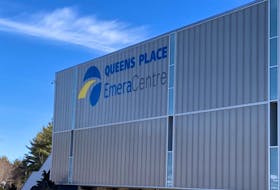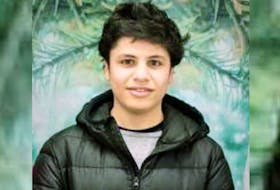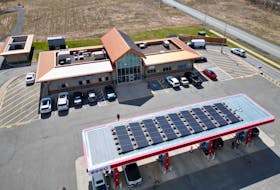
Rupasinghe, an associate professor at the Dalhousie Agricultural Campus and Canada Research Chair (fruit bioactives and bioproducts), has been working on cancer research for the past three years and has made strides with natural molecules in apple peelings and fish oil.
“It’s a topic that is touched to all of us,” said Rupasinghe. “When you talk to any individual, they will say, ‘yes, my parents or my siblings,’ have or had cancer.
Because the campus is agriculturally-based and Rupasinghe has an agricultural background, the research he is doing, along with a number of his students, is all related to agriculture.
“We’re looking at the effect one’s diet has on cancer, and specifically what food components are unique to our diet and what could be used to fight against cancer…what can be used as building blocks for new drugs,” he said, adding there is a relationship between population, diet habits and cancer.
Instead of studying synthetic molecules like big businesses creating treatment drugs are doing, Rupasinghe’s research is centered around food molecules, specifically molecules in cool climate fruits that are high in anti-oxidants.
From the early research, Rupasinghe knew molecules from apple peelings and fish oils both had some anti-cancer abilities, however, on their own there were issues. So he decided to combine the two groups.
“We worked for almost two years to create 12 new molecules,” he said, adding the best molecule of the dozen was chosen to continue the research.
“We knew this new molecule was good to kill liver cancer cells specifically but did not harm normal human cells, so now we are looking for other cancer types,” he said.
The research began to include triple negative breast cancer, which Rupasinghe said makes up 20 per cent of breast cancer diagnoses and that doesn’t respond to many cancer drug treatments.
“But we found that this new molecule could kill this cancer very effectively compared to other drugs that are available,” he said.
Upon discovering this, the research turned to using mice, in which Rupasinghe and his team created breast cancer tumours in the body of these experimental animals. During 30 days, the tumour grew to about the size of a green pea.
“We directly injected a little concentration of that molecule three times every second day and observed it for another month,” he said. “The tumour shrunk compared to the controlled group, which is very significant. It’s a very good sign.”
Thanks to the work that has been done over the past three years, the Beatrice Hunter Cancer Research Institute in Halifax has recognized it and granted a Cancer Research Training Program that will allow one of his students, Wasundara (Wasu) Fernando, to continue with the research.
“This is the first time this was given to a student in agriculture,” said Rupasinghe.
What’s next for the research is testing the molecule through an intravenous injection (via blood circulation) and even through a dietary supplement.
“We need to see if it is toxic. We know it’s not killing normal cells, just cancer cells. Chemotherapy also kills the normal cells and what we found is that this is specifically for cancer cells. That’s a promising thing but it’s still too early,” he said.








